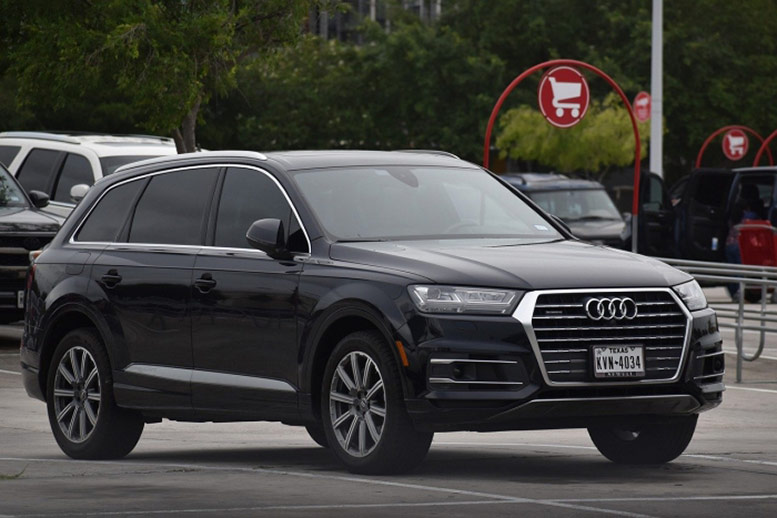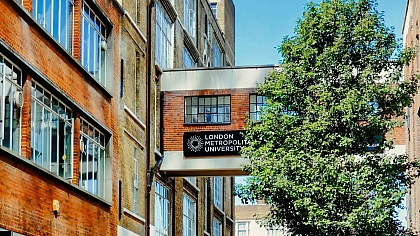UK Petrol Prices: Insights and Comparisons for Ex-Pats
For ex-pats living in or moving to London, or anywhere else in the UK, understanding the cost of living is crucial, and one of the significant expenses to consider is petrol prices. Whether you're commuting to work, exploring the British countryside, or simply running daily errands, the cost of fuel can have a direct impact on your budget and lifestyle.
Petrol prices in the UK are often a topic of conversation, especially among new residents who may be surprised by how they compare to prices back home. The UK’s fuel costs are influenced by a mix of local taxation policies, global oil prices, and economic factors, all of which fluctuate regularly. For ex-pats, being aware of these dynamics can help you make informed decisions about transportation, budgeting, and even where you choose to live.
This guide will break down the key factors behind UK petrol prices, compare them to prices in other parts of the world, and offer practical advice for managing fuel expenses while living in the UK. By the end, you’ll have a clearer understanding of how fuel prices might affect your day-to-day life, whether you're driving on the motorways of England or the scenic roads of Wales.

Understanding Petrol Pricing
Petrol prices are driven by a combination of local and global factors, making them more complex than they might seem at first glance. Understanding what influences the price of fuel can help ex-pats navigate these costs more effectively.
What Influences Petrol Prices?
A mixture of several key components shapes petrol pricing:
-
Crude Oil Prices: The cost of crude oil makes up the largest portion of the final price you pay at the pump. Since the UK imports a significant portion of its oil, global oil prices play a direct role in how much you pay for petrol. Oil prices are determined by global supply and demand, political stability in oil-producing regions, and decisions made by major oil-exporting countries like those in OPEC.
-
Exchange Rates: Since oil is typically traded in US dollars, currency fluctuations between the British pound and the dollar also influence the cost of fuel. A weaker pound means the UK must spend more to purchase oil, resulting in higher domestic petrol prices.
-
Refining Costs: Once crude oil is purchased, it must be refined into petrol. Refining costs can vary based on the complexity of the process and the demand for different types of refined products.
-
Distribution and Retail Costs: After refining, petrol needs to be transported and distributed to local filling stations. These logistical costs, including transportation fees and retail margins, can differ from region to region within the UK.
-
Taxes and Duties: A significant portion of petrol prices in the UK comes from taxes and duties imposed by the government. The most notable of these are fuel duty and VAT (Value Added Tax), which combined can add a substantial amount to the overall cost of petrol.
Global vs. Local Factors Affecting Fuel Costs
While global oil prices are a dominant factor, domestic policies also play a crucial role. For example, countries with their own oil reserves, like the US or Saudi Arabia, may have lower fuel costs compared to nations that rely on imports. On the other hand, government policies around environmental taxes, fuel subsidies, or infrastructure improvements can either raise or lower the price of petrol at the local level.
For ex-pats, these variations can be surprising. In some countries, governments subsidize fuel to make it cheaper for their citizens, while in others, particularly in Europe, higher fuel taxes are used to discourage car usage in favour of public transportation or cleaner energy alternatives.
Currency Fluctuations and Their Role
Currency fluctuations are another important factor. A strong or weak pound can have a significant impact on how much petrol costs in the UK. If the pound weakens against the US dollar, the cost of importing crude oil rises, pushing up the price of petrol at the pump. Conversely, when the pound strengthens, the relative cost of fuel imports may decrease, though these effects can take time to filter down to consumers.
For ex-pats earning in currencies other than British pounds, it's worth keeping an eye on exchange rates, as fuel might become more expensive if the pound weakens relative to your home currency.
Petrol Prices in the UK
Petrol prices in the UK are among the highest in the world, a fact that often surprises ex-pats who come from countries with lower fuel costs. These prices are driven largely by the UK's taxation policies, fluctuating global oil markets, and the country's commitment to reducing carbon emissions. Understanding the regional variations and the factors behind these prices can help ex-pats plan their transportation expenses more efficiently.
Overview of Current UK Petrol Prices
As of recent reports, the average price for petrol in the UK typically fluctuates between £1.40 and £1.60 per litre. Diesel prices tend to be slightly higher, hovering around £1.50 to £1.70 per litre. However, these prices can change daily due to movements in crude oil prices, exchange rates, and local competition.
For ex-pats accustomed to thinking in terms of gallons, it's important to note that the UK uses the metric system, so petrol is sold by the litre. To give some perspective, one gallon is approximately 4.54 litres, making it a useful conversion when comparing fuel prices to those in countries like the US, where prices are often discussed per gallon.
Regional Variations Within the UK
While petrol prices across the UK generally follow the same trends, there are some regional variations. For example, rural areas, particularly in Scotland, Wales, and Northern Ireland, often experience higher prices due to the increased costs of transportation and fewer petrol stations, leading to less competition. In contrast, urban centres like London or Manchester may offer more competitive pricing, especially near major roads or where there are multiple filling stations nearby.
London, despite being a major urban area, is known for having higher-than-average petrol prices due to factors like congestion charges, demand, and the cost of doing business in the capital. Ex-pats living in London or other large cities may also rely more on public transportation, which can offset the need to spend as much on petrol.
Taxation on Fuel in the UK
One of the major reasons petrol prices in the UK are high is taxation. There are two key taxes applied to fuel in the UK:
-
Fuel Duty: This is a fixed tax levied by the government on every litre of petrol sold. As of 2023, the fuel duty stands at 52.95 pence per litre, making up a significant portion of the overall cost.
-
Value Added Tax (VAT): On top of fuel duty, VAT is added at a rate of 20% on the final price, including the duty itself. This means that drivers are paying tax on tax, further inflating the cost of petrol.
The combined effect of these taxes means that approximately 60% of the price at the pump goes to the government, with the remaining 40% covering the cost of the fuel itself, distribution, and retailer margins.
For ex-pats coming from countries with lower taxes on fuel, such as the US or certain Middle Eastern nations, these high taxes can be a source of frustration. However, these policies are often framed as part of the UK's broader environmental strategy, aimed at encouraging the use of cleaner, more efficient forms of transport.
How UK Petrol Prices Compare Globally
When it comes to global petrol prices, the UK consistently ranks among the highest. For ex-pats, especially those coming from countries with lower fuel costs, this can be a significant adjustment. However, it’s important to recognize that fuel prices vary widely across the world, depending on factors such as taxation, government subsidies, and proximity to oil production. In this section, we will explore how UK petrol prices stack up against other regions.
The UK vs. Europe: How Does It Stack Up?
In comparison to its European neighbours, UK petrol prices are certainly on the higher end, but they aren’t the most expensive in Europe. Countries like Norway, the Netherlands, and Italy often have petrol prices that exceed those in the UK, driven by similar taxation policies aimed at reducing carbon emissions and encouraging public transport.
For instance, in Norway, petrol prices can be even higher than in the UK, regularly surpassing £1.80 per litre. However, Norway’s case is unique, as the country is one of the world’s leading oil exporters but uses high fuel taxes as part of its transition toward renewable energy. Countries like Denmark and Sweden also have high fuel taxes, making petrol prices similar to or higher than those in the UK.
On the other hand, some European countries such as Spain, Poland, and Austria have noticeably lower petrol prices. These nations generally have lower fuel taxes and, in some cases, benefit from cheaper labour and distribution costs.
Comparing UK Prices with Other Developed Nations (US, Canada, Australia)
For ex-pats coming from countries like the United States, Canada, or Australia, UK petrol prices can be a shock. In the US, for example, the average petrol price often hovers around $3.50 per gallon (equivalent to around £0.75 per litre), far lower than what UK residents pay. The US has relatively low fuel taxes, and as a major oil producer, it benefits from lower import costs and subsidies aimed at keeping fuel affordable.
In Canada, petrol prices are typically higher than in the US but still lower than in the UK, averaging around £0.85 to £1.10 per litre, depending on the province. Australia falls somewhere in the middle, with prices often ranging from £0.85 to £1.20 per litre. Both Canada and Australia have vast oil resources, which helps to keep domestic fuel costs relatively moderate compared to the UK.
For ex-pats from these countries, the stark difference in fuel prices in the UK often comes down to the heavier taxation and the UK's reliance on imported oil.
UK Petrol Costs Compared to Emerging Markets and Oil-Producing Nations
In emerging markets and oil-rich countries, petrol prices are typically much lower due to government subsidies or domestic oil production. Saudi Arabia, one of the world’s leading oil exporters, has some of the lowest petrol prices globally, often as low as £0.20 per litre, due to government subsidies aimed at keeping fuel affordable for its citizens. Similarly, countries like Venezuela (despite its economic turmoil) offer heavily subsidized fuel, with prices that can be shockingly low by international standards.
In Russia and Mexico, both major oil-producing nations, petrol prices are also lower than in the UK, often ranging from £0.60 to £1.00 per litre. Many of these countries use subsidies to keep fuel costs down, reflecting a national policy of making energy more affordable for the local population.
However, ex-pats from developing nations or oil-producing countries may find the UK’s high prices frustrating, as they are not accustomed to paying such premiums for petrol.
Reasons Behind High Petrol Prices in the UK
Petrol prices in the UK are among the highest globally, and several key factors contribute to this. For ex-pats, it’s important to understand why fuel is so expensive in the UK, as these reasons are often deeply rooted in the country’s taxation policies, environmental goals, and economic conditions. Below, we explore some of the main drivers behind the elevated cost of petrol.
Heavy Taxation Policies
One of the most significant reasons behind the high cost of petrol in the UK is the heavy taxation imposed by the government. As mentioned earlier, fuel duty and VAT (Value Added Tax) account for a substantial portion of the price you pay at the pump.
-
Fuel Duty: This is a fixed charge of 52.95 pence per litre for petrol and diesel. It has remained unchanged since 2011, but even at this rate, it constitutes a significant proportion of the overall cost.
-
VAT: The UK applies a 20% VAT on fuel, which is calculated after fuel duty is added. This effectively means you’re paying tax on the initial tax, further inflating the price.
The combination of fuel duty and VAT means that the UK government takes roughly 60% of the total price per litre of petrol. For ex-pats from countries where fuel is subsidized or taxed lightly, such as the US or certain Gulf states, this level of taxation can come as a surprise.
Supply and Demand Dynamics
The UK imports a large portion of its oil, and like any other commodity, the price of oil is dictated by global supply and demand. When global demand for oil rises, or when geopolitical events disrupt supply (such as conflicts in oil-producing regions), the price of crude oil increases. The UK is particularly vulnerable to these fluctuations because it relies on imports. Additionally, the UK no longer benefits from the North Sea oil reserves as much as it did in previous decades, meaning it depends more on foreign oil sources.
The price of crude oil can swing significantly based on:
-
OPEC decisions: The Organization of the Petroleum Exporting Countries (OPEC) controls a large portion of the world’s oil supply and can influence prices by deciding to increase or reduce production.
-
Geopolitical instability: Conflicts, sanctions, and political unrest in major oil-producing regions such as the Middle East, Russia, and Venezuela can disrupt supply chains, leading to price spikes that directly impact the UK market.
-
Seasonal demand: In colder months, there tends to be increased demand for heating oil, which can push up prices for refined petrol products as well.
The Role of Environmental Policies and Sustainable Goals
The UK government has set ambitious targets to reduce carbon emissions, and part of this effort involves discouraging the use of fossil fuels. High fuel taxes, particularly on petrol and diesel, are designed to incentivize drivers to switch to greener alternatives such as electric vehicles (EVs) or public transportation.
Policies such as Clean Air Zones in cities like London, which impose additional charges on older, more polluting vehicles, are further attempts to drive down fossil fuel consumption. Additionally, there are plans to ban the sale of new petrol and diesel cars by 2035 as part of the government's net-zero carbon strategy.
The pressure to meet these climate goals pushes the government to maintain high petrol prices through taxation, effectively using the cost as a tool to influence consumer behaviour.
Brexit and Currency Devaluation
The aftermath of Brexit has also played a role in the cost of petrol. Since the UK left the European Union, the British pound has weakened compared to other major currencies, especially the US dollar. This has made importing crude oil more expensive, as oil is traded globally in dollars. A weaker pound means that the UK has to spend more to import the same amount of oil, which then translates into higher prices at the pump.
While the pound’s value fluctuates, Brexit’s long-term economic effects could continue to impact petrol prices, particularly if the UK finds it harder to negotiate favourable trade deals or if future exchange rates remain weak.
Cost of Owning and Running a Car in the UK
For ex-pats, particularly those used to driving in countries where fuel and vehicle ownership costs are lower, the financial burden of running a car in the UK can come as a surprise. Beyond petrol prices, there are several other factors to consider when calculating the true cost of vehicle ownership. These include insurance, maintenance, road tax, and parking fees, all of which can add up quickly.
Petrol Costs as Part of Overall Vehicle Ownership
While fuel is a major expense, it’s just one component of the total cost of owning a car in the UK. For a driver covering around 10,000 miles per year, fuel costs could range from £1,500 to £1,800 annually, depending on fuel efficiency and regional petrol prices. This is significantly higher than in countries with lower fuel costs, such as the US or parts of the Middle East, where driving long distances daily is more common.
However, it’s worth noting that fuel consumption can vary greatly depending on the type of vehicle you drive. Larger, less fuel-efficient cars, such as SUVs, will naturally incur higher fuel costs than smaller, more economical models.
Insurance Costs in the UK
Car insurance is another significant expense that ex-pats need to factor in. In the UK, it’s mandatory to have at least third-party insurance to drive legally. Insurance costs can vary widely based on factors such as your age, driving history, type of vehicle, and where you live.
Ex-pats often find that their car insurance premiums in the UK are higher than they were used to in their home country, particularly if they come from a country where driving risks are considered lower. The UK has a strict no-claims bonus system, which rewards drivers for each year they don’t make a claim, but as a new arrival, you may not benefit from this immediately, leading to higher initial premiums.
On average, comprehensive car insurance in the UK costs between £400 and £600 per year, but this can be higher for younger drivers or those in urban areas like London, where the risk of accidents or vehicle theft is higher.
Maintenance and Servicing Costs
Regular vehicle maintenance is essential, and in the UK, it is mandatory to have an MOT (Ministry of Transport) test for vehicles over three years old. The MOT ensures that your car is roadworthy, and it must be done annually. The cost of an MOT is capped at £54.85 for cars, but repairs required to pass the test can push up costs considerably, particularly for older vehicles.
Routine servicing, tyre replacements, and unexpected repairs add to the running costs. Annual servicing for a car typically costs between £100 and £300, depending on the service type and the vehicle's make and model. Larger, premium cars generally have higher servicing and parts costs.
Vehicle Excise Duty (Road Tax)
Another cost to account for is Vehicle Excise Duty (VED), commonly known as road tax. The amount you pay depends on your car’s CO2 emissions, with lower-emission vehicles incurring a much smaller charge, and electric vehicles being exempt. For new vehicles, the first-year rate can range from £0 for zero-emission vehicles to over £2,000 for the highest-emission models. After the first year, VED typically ranges from £10 to £500 annually for most cars.
This emissions-based road tax system is designed to encourage drivers to choose more environmentally friendly vehicles. For ex-pats bringing a car into the UK or purchasing a new one, it’s worth considering this when choosing a vehicle, as lower-emission cars can lead to significant savings in road tax and potentially other fees.
Parking and Congestion Charges
In addition to the direct costs of running a car, ex-pats living in urban areas may also need to consider parking and congestion charges. In cities like London, parking fees can be expensive, with hourly rates in central areas often reaching £4 to £6, while annual resident permits in certain boroughs can cost hundreds of pounds.
London also imposes a Congestion Charge of £15 per day for driving within certain central areas during peak hours (7:00 AM to 6:00 PM on weekdays), with additional charges for more polluting vehicles entering Ultra Low Emission Zones (ULEZ). These fees can add a considerable expense for drivers regularly commuting into the city.
For ex-pats used to more spacious, car-friendly cities or towns, particularly in North America or parts of the Middle East, the combination of parking fees, congestion charges, and fuel prices in UK cities can make owning a car less appealing.
Tips for Managing Petrol Costs in the UK
Given the high cost of petrol in the UK, managing fuel expenses becomes an important consideration for ex-pats, particularly those who rely on their vehicles for commuting or travel. There are several ways to reduce fuel consumption and, ultimately, the cost of running a car in the UK. Here are some practical tips for keeping fuel expenses under control.
Choose Fuel-Efficient Vehicles
One of the most effective ways to reduce fuel costs is to opt for a more fuel-efficient vehicle. Cars with smaller engines, hybrids, or fully electric vehicles tend to use less fuel (or none at all, in the case of electric cars), which translates into significant savings over time.
-
Hybrid vehicles: These combine a traditional petrol engine with an electric motor, reducing fuel consumption, especially in city driving. Popular hybrid models, like the Toyota Prius, offer high fuel efficiency, helping to offset the impact of high petrol prices.
-
Electric vehicles (EVs): While EVs eliminate the need for petrol, they also benefit from government incentives such as lower road tax and exemption from congestion charges in cities like London. The UK government offers grants for installing home charging points and is rapidly expanding public charging infrastructure, making EVs a more viable option for many drivers.
-
Downsizing: If you don’t need a large vehicle, consider downsizing to a smaller car with a more efficient engine. Cars in the subcompact or compact categories often have better fuel economy than larger models, saving you money on both fuel and road tax.
Adopt Fuel-Efficient Driving Habits
The way you drive can have a big impact on fuel consumption. By adopting fuel-efficient driving techniques, you can stretch the mileage from each litre of petrol. Here are some driving habits that can reduce your fuel usage:
-
Smooth acceleration and braking: Rapid acceleration and hard braking consume more fuel. Driving smoothly and anticipating road conditions can improve fuel efficiency.
-
Maintain a steady speed: Where possible, use cruise control on motorways to maintain a consistent speed, which is more fuel-efficient than frequent speeding up and slowing down.
-
Reduce idling: Idling wastes fuel. If you're stationary for more than a minute or two, such as in traffic or at a level crossing, it’s more fuel-efficient to switch off the engine.
-
Reduce air conditioning use: Running the air conditioning system increases fuel consumption. If the weather permits, consider using the car’s ventilation system or rolling down the windows when driving at lower speeds.
-
Properly inflate tyres: Under-inflated tyres cause more resistance on the road, meaning your engine has to work harder and burn more fuel. Check your tyre pressure regularly to ensure they're properly inflated.
Use Fuel Price Comparison Tools
Fuel prices can vary by several pence per litre between petrol stations, so it’s worth shopping around to find the best deal. Several apps and websites allow you to compare fuel prices in your area, helping you identify the cheapest option nearby.
Popular fuel comparison tools in the UK include:
-
PetrolPrices.com: This website and app allow users to compare petrol prices at stations across the UK. You can enter your postcode or search along your regular route to find the cheapest fuel in your area.
-
Waze: The popular navigation app also provides real-time fuel price updates from local stations, allowing you to find affordable options while on the road.
By using these tools, ex-pats can potentially save a significant amount of fuel over a year.
Consider Carpooling or Ride-Sharing
Another way to cut fuel costs is by carpooling or using ride-sharing services. Carpooling with colleagues or friends on regular commutes can reduce the number of trips you need to make, allowing you to split the fuel costs.
Additionally, some ex-pats might find ride-sharing services like Uber or Bolt more cost-effective than owning and running a car, particularly if they live in urban areas with reliable public transportation.
Combine Journeys
Whenever possible, try to combine multiple trips into one. Planning your route efficiently to complete several errands in a single journey can reduce the overall number of miles you drive, which in turn helps reduce fuel consumption.
For longer trips, using tools like Google Maps or Waze can help you find the most fuel-efficient route, avoiding traffic congestion that could lead to unnecessary idling.
Use Public Transport When Feasible
In many parts of the UK, particularly in large cities like London, Manchester, and Edinburgh, public transport is a convenient and affordable alternative to driving. The UK boasts an extensive network of buses, trains, trams, and underground services, offering ex-pats an excellent way to reduce their reliance on personal vehicles.
For longer journeys, National Rail services or coach companies like National Express and Megabus provide affordable travel options across the country, which can be much cheaper than driving, especially when factoring in petrol costs.
Alternatives to Driving in the UK
Given the high cost of petrol and vehicle ownership in the UK, many ex-pats find it worthwhile to explore alternative modes of transportation. The UK has a well-developed public transport system, and cycling or walking is often a practical and cost-effective option, particularly in urban areas. Below, we examine some of the most popular alternatives to driving in the UK.
Public Transport: A Comprehensive Option
The UK's public transport system is one of the most extensive and reliable in Europe, with options including buses, trains, trams, and the underground, making it easy to navigate cities and rural areas alike without a car.
-
Buses: Buses are a popular and affordable option for commuting and travelling around towns and cities. In London, for example, the London Bus network is comprehensive, with fares capped at £1.75 per journey. Outside of London, cities like Manchester, Birmingham, and Edinburgh offer well-connected bus routes that are affordable and easy to use.
-
The London Underground: For those living in the capital, the Tube is one of the fastest ways to get around, avoiding city traffic and congestion charges. Fares are determined by zones, but purchasing an Oyster card or using contactless payment can offer savings on daily travel. Ex-pats living in London often find the underground to be a more economical alternative to driving, particularly for commuting.
-
Trains: The UK’s National Rail network connects major cities and towns across the country, offering a practical alternative for longer journeys. Ex-pats can purchase railcards, such as the 16-25 Railcard or the Senior Railcard, which offer up to 1/3 off most fares. Regular train services also operate within major cities like Glasgow and Liverpool, providing commuters with a quick and efficient alternative to driving.
-
Trams: In certain cities, trams are a popular mode of transport. Manchester Metrolink and Nottingham Express Transit are examples of extensive tram networks that provide affordable, quick access to city centres and suburbs.
Cycling: A Sustainable and Cost-Free Alternative
Cycling is a growing alternative to driving in the UK, particularly in urban centres. Cities like London, Bristol, and Cambridge have invested heavily in cycling infrastructure, including dedicated cycle lanes and bike-sharing schemes like Santander Cycles in London.
For ex-pats living in areas with safe cycling routes, commuting by bike can be an ideal way to save on fuel costs while also contributing to a healthier lifestyle. Many cities also offer cycle-to-work schemes, which provide financial incentives for purchasing a bike.
Car Clubs and Short-Term Rentals
For ex-pats who don’t need a car daily but want access to one occasionally, car clubs and short-term rental services offer a flexible and affordable solution. Companies like Zipcar and Enterprise Car Club provide vehicles for hourly or daily hire, with membership options that include fuel and insurance.
These services are especially useful for those living in cities where parking is limited and expensive. By using a car club, you can avoid the long-term costs of owning a car while still having access to one when needed.
Walking: A Viable Option in Urban Areas
In many of the UK’s compact cities and towns, walking is a practical alternative to driving or even public transport. With pedestrian-friendly streets and well-marked crossings, walking can be an efficient and cost-free way to get around.
For ex-pats living in cities like Oxford, York, or Bath, walking is often the easiest way to navigate daily life, as many historical centres are pedestrianized or have restricted car access.
Ride-Sharing and Taxis
For those who need flexibility but don’t want the expense of owning a car, ride-sharing services like Uber, Bolt, and Ola are widely available in major cities. These services can offer a convenient and affordable way to travel for occasional journeys, particularly for ex-pats who live in urban areas with limited parking options.
In addition to ride-sharing apps, traditional black cabs in London and private hire taxis in other cities provide reliable transportation, though they tend to be more expensive than public transport or ride-sharing options.
For ex-pats adjusting to life in the UK, the cost of petrol and vehicle ownership can be a major consideration, particularly if coming from a country with lower fuel prices. However, by exploring alternatives like public transport, cycling, and car-sharing schemes, it’s possible to significantly reduce transportation costs while still enjoying the freedom of mobility. The UK’s well-developed transport infrastructure offers a variety of ways to navigate the country without relying heavily on a personal vehicle, making it easier to balance convenience and cost.











